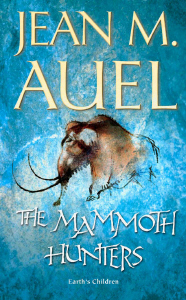In my last post I talked about the concept of moral dissonance, relating to our ability to accept the idea of the death penalty, specifically using our assassination of Bin Laden as the center of that discussion.
I wasn’t sure if “moral dissonance†was even a concept in use. I’ve googled it a bit, and found that (as you would expect) it is a phrase that’s used. Here’s an article on Wikipedia discussing cognitive dissonance, and tying it to the idea of moral dissonance.
We all find ourselves faced with decisions we need to make, or positions we need to support or condemn. Sometimes the decisions we make or the positions we support are at odds with our core moral compass. In those cases, we can either recognize, accept, and live with the moral dissonance, or we can justify our decision in some way – building a case that makes it an acceptable exception to our moral compass.
I think the latter is standard human behavior – it’s what we all want to do. There’s a great danger in that path though, because the better we get at building those walls of justification around our deep moral compass, the more likely we (and our society) will devolve into behavior that is increasingly destructive, immoral, and downright pathological.
Case in point: As a country, we’ve allowed our leaders over the past decade to ignore moral taboos against torture, and have joined nations like North Korea and Libya who are happy to use torture if they think it might help them in some way. I doubt that even 1% of the US population believes that inflicting torture and pain and torment on another human being is moral behavior. Yet, a large minority of Americans support our government’s evolution to a torture state, and I would argue that even a majority of Americans tacitly support the idea when we elect any leader not willing to denounce the practice.
Look at the headlines lately, and the vociferous justifiers of torture claiming that the lead to Bin Laden came from a GTMO detainee – presumably tortured. This is strong medicine to help us to take the torture we allow our government to perform in our name, and move that torture into a safe category of “justified†– carefully isolated from the moral compass that tells us it’s not OK. Never mind the rest of the facts – that using torture makes it more likely that our citizens and soldiers will be tortured, and that the vast majority of information derived from torture is less than worthless. We’re willing to ignore all facts except the ones that allow us to justify the immoral behavior.
Am I being clear here? We ALL behave in ways counter to our moral compass – we do it all the time. The issue I’m raising is the difference in how we deal with this internally when it happens.
The lack of tolerance for moral dissonance drives us to justify our actions when they are at odds with our moral compass. Doing this allows us to continue to behave immorally with (internal) impunity, as we’ve build walls of isolation around our moral compass as it relates to our own behavior.
The alternative? Accept the fact that we sometimes choose to behave in ways that are at odds with our stated moral beliefs. Each time this happens, it should force the recognition that the decision we’re making is immoral. I can then take a stand that accepts my behavior AND accepts the moral incongruity, or I can do the hard work of evaluating the moral positions that I’ve taken, to see if I still believe them to be correct.
This is essential work – both as an individual and as a society. I’ve pointed out a couple of places where we – as a society – need to do this hard work. Are there places in your personal life where you need to confront moral dissonance? I know there certainly are in my own.
On the death penalty, I choose to accept the dissonance, and live with it. I accept that I think it’s morally wrong, and I live with the fact that I support it in some cases. Carefully managed and humanely administered, it allows us to eliminate a few of the chronic threats to society.
On the issue of torture, I choose to oppose torture in all cases – I can’t accept it under any circumstance. If there was some evidence that it consistently “worked”, I would probably change my mind. But there isn’t any such evidence, and quite a bit of contrary evidence. The damage it causes far outweighs the gains it brings.
Where are your big moral dissonance issues? How do you deal with them when your moral compass threatens to expose them?
Next, I’ll bring up some questions on this topic as they relate to a real hot-button issue – abortion.




 The Collectors by David Baldacci
The Collectors by David Baldacci




